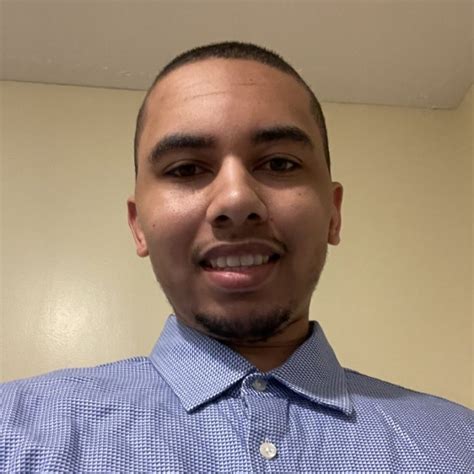
Podcast: Play in new window | Download (Duration: 33:28 — 26.8MB) | Embed
Subscribe: Apple Podcasts | Spotify | Email | RSS | More
Episode #2: Emerging Adult living with Schizophrenia, finding help, using a toolbox to cope, giving back as peer specialist, leading with Students with Psychosis
Blog subscribers: Listen to the podcast here. Scroll down through show notes to read the post.
Subscribe to Health Hats, the Podcast, on your favorite podcast player
This episode is best watched on YouTube
Episode Notes
Prefer to read, experience impaired hearing or deafness?
Find FULL TRANSCRIPT at the end of the other show notes or download the printable transcript here
Contents with Time-Stamped Headings
to listen where you want to listen or read where you want to read (heading. time on podcast xx:xx. page # on the transcript)
When did you realize health is fragile? 02:27
How did mental illness feel? 03:15
My parents, my chosen family 07:26
More than medication – empathy 09:19
Finding the right medication 11:57
Finding the right therapist 13:52
A word from our sponsor, Abridge 16:59
Never too early to ask for help 17:41
Keep your coping skills in your toolbox 20:10
I wish health professionals… 21:01
Need, capacity, staff, recovery coaches 22:05
Reciprocating as a peer specialist 23:32
Clip -Erika Blair, Emeka’s Mom 28:35
Nugget from the Mine – Ciel Coffee 29:58
Please comment and ask questions
- at the comment section at the bottom of the show notes
- on LinkedIn
- via email
- DM on Instagram, Twitter, Mastadon to @healthhats
Credits
Music on intro and outro by permission from Joey van Leeuwen, Drummer, Composer, Arranger including Moe’s Blues for Reflection
Web and Social Media Coach, Dissemination Kayla Nelson @lifeoflesion
Intro photo of Vulture Couple by Rich Rieger used with permission
Photo by Nick Fewings on Unsplash
The views and opinions presented in this podcast and publication are solely my responsibility and do not necessarily represent the views of the Patient-Centered Outcomes Research Institute® (PCORI®), its Board of Governors or Methodology Committee. Danny van Leeuwen (Health Hats)
Sponsored by Abridge
Inspired by and grateful to Jimmy Clare, Jason Stewart, Keith Scott
Links
Nuggets from the Mine (Unfunded Recommendation)
FOR COFFEE CONNOISSEURS. Nothing but the best. For me, the best reflects a coffee product of time, attention, and care from the Coffee Producer and the Coffee Roaster. Each bean is a reflection of its best potential
Related podcasts
Young Adults with Complex Conditions Transitioning from Pediatric to Adult Medical Care
Young Adults, Parents, alone, together. High school, college, professionals, parent. Plus physician, teacher
Series: Emerging Adults with Mental Illness
About the Show
Welcome to Health Hats, learning on the journey toward best health. I am Danny van Leeuwen, a two-legged, old, cisgender, white man with privilege, living in a food oasis, who can afford many hats and knows a little about a lot of healthcare and a lot about very little. Most people wear hats one at a time, but I wear them all at once. I’m the Rosetta Stone of Healthcare. We will listen and learn about what it takes to adjust to life’s realities in the awesome circus of healthcare. Let’s make some sense of all this.
To subscribe go to https://health-hats.com/
Creative Commons Licensing
The material found on this website created by me is Open Source and licensed under Creative Commons Attribution. Anyone may use the material (written, audio, or video) freely at no charge. Please cite the source as: ‘From Danny van Leeuwen, Health Hats. (including the link to my website). I welcome edits and improvements. Please let me know. danny@health-hats.com. The material on this site created by others is theirs and use follows their guidelines.
The Show
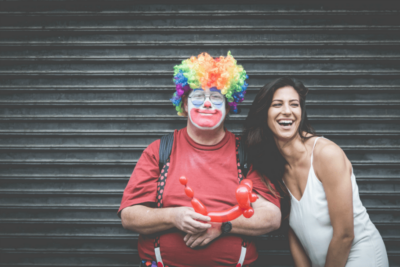
Photo by Diana Feil on Unsplash
Health Hats: I’ll tell you a funny story before we start. One of my first interviews was with this fellow who was a clown. Reading the Room. Lessons from the Clowns. Take 2. He worked at Boston Children’s Hospital with the kids. He talked about being a clown and the importance of being comfortable with failure. He would go into the rooms and had to read the room fast. What are the dynamics? How’s the kid feeling, and how are the parents feeling? He says you must be comfortable with half the time misreading the room. We had this great conversation, then hung up, and I realized I had never recorded. I had to call ‘him back and say, Let’s embrace failure. I forgot to record. So, we did it again. It was better.
Emeka Chima: Oh, thanks for sharing that. That’s an amazing story. That’s why it’s so important to be heard.
Health Hats: It is. With being heard, sometimes you hit the mark, and sometimes you don’t. People just don’t get it. Or you had an off day or whatever it was. I don’t know. I do know. I’m like you. I’m smart. I’m pretty. I’m charismatic. And I mess up.
Emeka Chima: I do that all the time, so don’t worry about that.
Health Hats: All right, let’s get rolling.
Podcast intro
Welcome to Health Hats, the Podcast. I’m Danny van Leeuwen a two-legged cisgender old white man of privilege who knows a little bit about a lot of healthcare and a lot about very little. We will listen and learn about what it takes to adjust to life’s realities in the awesome circus of healthcare. Let’s make some sense of all of this.
When did you realize health is fragile?
Emeka Chima: Probably when I was diagnosed at an early age on the autism spectrum. I had a therapist who had MS, Multiple Sclerosis. That connection. Even you couldn’t see it from the outset. I realized that he was dealing with something deeper than you can see. So that was when I realized, wow, chronic illness is very fragile. It makes the human body and the human spirit fragile.
How did mental illness feel?
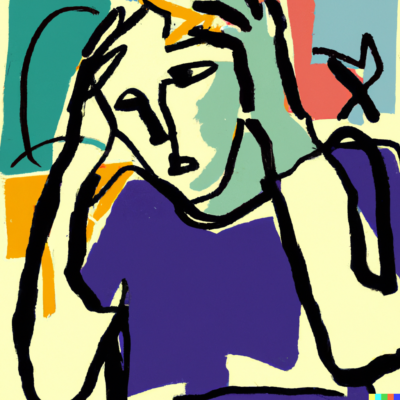
Created by DALL.E
Health Hats: What was happening to you when you were younger, and you felt out of it and lost? It seems like there must have been a time when you suddenly felt, oh man, this might help me.
Emeka Chima: I was diagnosed at 15 and went to the inpatient psych ward. And that was probably the most traumatic experience of my life. After many trials and errors in and out of hospitals and trying so many medications, I found one that was the solution.
Health Hats: Did you feel dramatically different from the inside when you took that medication?
Emeka Chima: Very. And it showed on my outside too. I was experiencing fewer symptoms. And I could live through day-to-day life.
Health Hats: Okay. Your mom told me that you were a precocious young person. That you learned quickly and that when you were in school, it was boring. That sounded seriously annoying to me. So that must have been freaky to start the experience where you felt like you couldn’t live through life day-to-day. I don’t know what it feels like to have psychosis. What were you experiencing that you knew something was really messed up here?
Emeka Chima: In my junior year of high school, turning 16 in the fall semester, things started going haywire. I heard hearing voices and saw visual hallucinations. I could not understand what was happening to me. I didn’t know what psychosis was. I did not understand what was happening to me. All I knew was maybe I need help.
Loneliness
Health Hats: You heard voices, and at first, they were just voices? You were hearing something, and then you realized your mom’s not hearing them or other kids in school aren’t hearing them. They were voices to you. That’s disconcerting. That must have been lonely.
Emeka Chima: I felt alone probably 90% of the time. I knew I had my parents there. They were my best allies. But I don’t think they would ever know how I felt because they never dealt with schizophrenia. They never dealt with psychosis. I was the only, probably the only person I knew in the family that had this diagnosis. I didn’t think anyone understood, so I felt a bit isolated.
Get treatment sooner
Health Hats: Did you end up going to the hospital because you were a danger to yourself or other people or for a different reason?
Emeka Chima: I didn’t think I would cause any harm. I just know my parents saw that I was out of it, and they had to respond. When it comes to the first episode of psychosis, the earlier you get treatment, the better. Their mindset was my son needs treatment.
My parents, my chosen family
Health Hats: What I’m hearing, and again, I’m putting words in your mouth, so correct me, is that you were fortunate that you had your parents. I would imagine that as a teenager, often with parents, it’s just usual teenage stuff. You’re breaking away from your family. And teenagers have stress with their parents. That’s just what being a teenager is about. And you were different. Am I right? That wasn’t one of your stressors.
Emeka Chima: Yeah, undoubtedly. I would say the contrary.
Health Hats: It sounds like your parents were, as you just said, your main allies in this. And how about other people? Did you feel like it was just them? Or did you feel like other people cared about you and knew something was wrong?
Emeka Chima: There were so many I would call chosen family. After my second psych stay, they weren’t supposed to be there for me. I got help at Johns Hopkins Bayview. It’s a hospital clinic based in downtown Baltimore. I think outside of my parents, they were my chosen family.
More than medication – empathy
Health Hats: Did you find a medication, and then that medication made a significant difference? I’m putting words in your mouth, so correct me. The medications seemed necessary, but not sufficient. You needed more than just medication. I don’t mean just medication. You needed more than medication. What else did you need?
Emeka Chima: I needed people to understand me and how to treat me as an individual rather than a person under this label. I needed that empathy from my caretakers.
Health Hats: Needed empathy.
Re-entry, relearning
Health Hats: Did you have to learn different habits? Did you have to learn how to process incoming stimuli? I’m trying to get a picture because I know so little.
Emeka Chima: I did have to change a lot. I had to relearn most basic motor skills, writing, handling myself, and walking properly. It was a learning, growing process.
Health Hats: Really?
Emeka Chima: Yeah. Because I was cooped up in the psych ward for so long. I had no outside interaction, no outdoor experience. I was pretty much solitary the whole time.
Health Hats: How did re-entry go? You said you were in inpatient facilities and had lost track of how to act. Let me ask, was that because of inactivity? Was that because you were on drugs that were suppressing things, and as you found the proper medication, you were then getting off the drugs that were so suppressive?
Finding the right medication
Emeka Chima: I saw a noticeable change as soon as I started taking the medicine they prescribed, like antipsychotics. I saw a change, but I wouldn’t call it a positive change. I had very vivid side effects, noticeable side effects
Health Hats: Of the antipsychotic medicines that you got at first until they found what it was that would work for you?
Emeka Chima: It wasn’t until I got discharged from that, the psych ward. That was when I first received the antipsychotic I needed.
Hospital to school
Health Hats: So, part of your rehab was everything, physical, mental, emotional. All of it. Wow. That’s a lot to go through. You were in trouble, and you were in the hospital. You got out of the hospital, and then you were in school. There must have been a space there.
Emeka Chima: There was a significant hiatus between coming out of the hospital and entering the school environment. The first hospital stay was over three weeks. Then my parents thought I shouldn’t go to school immediately. So, I tried outpatient school.
Health Hats: Did you do day rehab or something where you do day programs?
Emeka Chima: Day programs. And we were looking for the right therapist. I’ve encountered many in my journey.
Finding the right therapist
Health Hats: I don’t know what you were going through, but I know that the therapist I needed was a grief counselor. I had a son who was sick and dying, and it took three times. Do you know what I mean? Somebody would get recommended. I would go, and it didn’t work out. I went to another one. Very nice person, but I didn’t feel like I was getting anywhere. Then there was the third one, and we clicked. That was 20 years ago. And I still call him occasionally because he’s so good. But I understand it takes time. But you were fortunate that you could try different professionals. So, did you guys have good insurance so that there was a network of professionals, or were you plugged into a system open to finding the right person? How did that happen?
Emeka Chima: I was under my parent’s insurance until college. That’s how we’re pretty much able to afford all that healthcare.
Remission, cured?
Health Hats: Let me bare my ignorance, okay? Do you feel like you’re in remission, that you’re cured of paranoid schizophrenia? Now with the correct medication, are you done with that, and you’re cured, or do you feel like it’s just something you must stay on top of?
Emeka Chima: Even with the medication, I still have breakthrough symptoms.
Health Hats: I can’t relate to it the way you do, but I have multiple sclerosis and am stable. But there are ups and downs. It’s progressive. It’s never going away. You must manage yourself. Again, I’m putting words in your mouth. You’re managing your energy levels, stress, nutrition, and the people you hang out with. Are all these things part of managing yourself?
Emeka Chima: Definitely, all these factors come into play. You can’t have one without the other.
A word from our sponsor, Abridge
Now a word about our sponsor, ABridge. Record, your healthcare conversations with doctors and other clinicians with ABridge. Push the big pink button and record. Read the transcript or listen to clips when you get home. Check out the app at ABridge.com. or download it on the Apple app store or Google play store. Let me know how it went.
Never too early to ask for help
Health Hats: Is there something about your acute experience that you would advise other young people who are going through it or helping people, whether clinicians or non-clinicians? What’s your advice to them? What have you learned that you would share with people?
Emeka Chima: I would say it’s never too early to ask for help, either from a mentor, a care provider, or a loved one. The sooner, the better. That’s a big one.
Health Hats: People have a hard time asking for help. Now I’m relating my experience with a dying son, and people wanted to be helpful, and we had to work hard to find stuff for them to do, things we needed. People don’t know what to do. There’s the asking for help from people. Something like your parents, your teacher, your doctor, your whatever, your therapist, your mentor, and some people care about you and want to help but have no idea what that means. Is that your experience?
Emeka Chima: If you don’t ask the right person, you won’t get the needed response. I ask somebody that knows me well. As somebody more qualified to help, I wouldn’t ask—somebody with no familiarity.
Health Hats: So, your advice is to get help early. Err on the side of too early. What else?
Keep your coping skills in your toolbox
Emeka Chima: Keep your coping skills in your toolbox. The more you use them, the more you overlearn them, and the more you can retain them.
Health Hats: What are some examples of coping skills you’ve learned?
Emeka Chima: One of my therapists gave me this coping skill called the breathing square. You take a deep breath and hold it in for three until you create a square. It’s a grounding technique, simple grounding.
Health Hats: Wow. I like that.
I wish health professionals…
I’ll read the next question, but I don’t know if it’s the right question, so you can answer it however you like. What do you wish healthcare professionals knew or could offer young people who experience crises?
Emeka Chima: I wish healthcare professionals knew more about the underlying factors behind the illness.
Health Hats: Okay. For example?
Emeka Chima: Whether it is environmental, your surroundings, or biological, it runs in the family. I think that both of those applied to my own experience. I had a paternal grandfather who was diagnosed with bipolar disorder. Before then, I didn’t know anybody in my immediate family had a severe mental illness, which was very eye-opening.
Need, capacity, staff, recovery coaches
Health Hats: When I talk to doctors or administrators of inpatient psych units, I hear them talk about needing more resources to meet demand. There’s not enough staff, not enough time. So, when I think about time-related issues, I think about the value of people who have lived experience and who may not have a degree or a license but are recovery coaches. What’s your experience with the help you’ve gotten with people with various backgrounds and credentials?
Emeka Chima: I’ve had a lot of experience. My support system comes from all different backgrounds. Not only where they’re from but what they’re specialized in.
Reciprocating as a peer specialist
Health Hats: Your mom told me you’re now a peer mentor for young people.
Emeka Chima: Yeah. Peer mentor. A peer counselor. You can call it peer recovery or peer specialist.
Health Hats: How’s that going?
Emeka Chima: Since I started this past July, I have enjoyed it. It’s something I could reciprocate what I’ve learned as a patient into the lives of all my clients.
Students with Psychosis
Health Hats: Two more questions. Tell me about Students with Psychosis. You mentioned that when we first met, and your mom talked about it.
Emeka Chima: Students with Psychosis is a non-profit organization formally known as Students with Schizophrenia. It has an international membership base and has been around since the year before the pandemic. It has virtual outreach, meaning it’s accepted members with lived experience from all over the world. I became interested in this when I was a college student. I reached out to them with an email, and they readily accepted me into the organization. And after that, I knew that was my place—a shout-out to the executive board since I am the executive board secretary.
Health Hats: Congratulations.
Emeka Chima: Thank you. It took a while to reach that point. It’s been one of the highest achievements I’ve ever had. I’m honored to be part of this organization.
Health Hats: When I went on the website, it looked like they had almost 24/7 services. Wherever you are, something is going on. It seems like people are in school, and of course, there’s just so much stress being in school with deadlines, social garbage, and just whatever family stuff. If you’re having either a crisis or smelling like maybe there’s a crisis coming, the site has something available. Am I reading that right?
Emeka Chima: Yes. No matter the time zone no matter the situation. So, it’s a personalized and individualized community, meaning that we accommodate any of your needs, and you come on your own time that needs no pressure to attend other meetings. But we like seeing new members join because that shows how prevalent the issue is worldwide.
Health Hats: This has been wonderful. I feel we will stay in touch, and I value that we’ve met. I’m an old guy, so I’m 70, and like to learn. And I’ve learned a lot from you, and I want to continue that.
Emeka Chima: Thank you. Of course. I would like love to share more with you. I’ll add you to my contact list as well.
Health Hats: Perfect. Thank you so much.
Reflection
I spent many years working in behavioral health as an administrator, leading performance improvement, quality management, and electronic health records implementation. I only provided direct care for a year as an aide in an inner-city inpatient, psychiatric ward. I decided to go to nursing school while working there. In my many behavioral health gigs, whenever I walked through a room with people with mental health and addiction illnesses, I felt overwhelming crippling pain. I had no filter. It freaked me out. So, instead I served those people that served patients. I never felt that crippling pain as a direct-care clinician with people who had medical problems and co-morbid behavioral challenges. I don’t know why. Our next episode will be with Erica Blair, Emeka’s mom.
Clip -Erika Blair, Emeka’s Mom
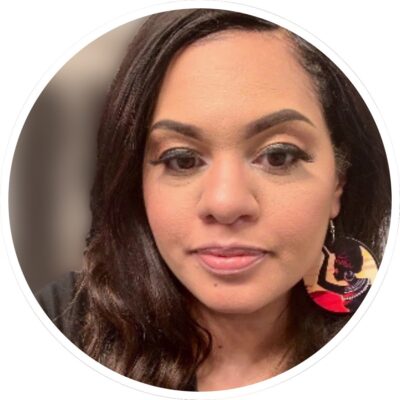
Erika Blair
Erika Blair: It was scary for both of us, but my goal as a parent was just to get him recovered. Get him well, to get him help. And he was scared, so I wanted to help him. I needed to do everything I could to find resources. And all I did was reach out, find the resources, to research, and get him help. I’m in technology. I was working at FDA at the time. My focus has always been medical technology and medical research. I’m big on, looking at research, medical research and see what is successful.
Nugget from the Mine – Ciel Coffee
I drink coffee while I’m producing podcasts – water and coffee. Let me
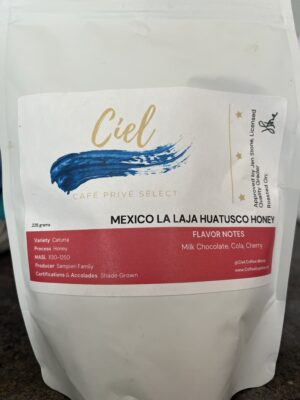
introduce you to Jen Stone and Ciel Coffee Roasters. Jen wants to connect coffee drinkers with extraordinary cups of coffee. She joins coffee tasters with artisan coffee producers. I almost always drink good coffee, but Jen’s coffee is amazing, and it comes with a story. Last week I received a sampler of coffees. One package said Process: Honey. My wife worried that it was processed with honey. Jen replies with
The Honey process is when they take just the outer cherry skin off but leave all the cherry pulp on the seed and let it dry. It gets all sticky and the sugars naturally ferment and impart a slightly sweeter taste than if the coffee cherry and pulp had been removed completely and only the coffee bean (seed) dried out in the sun.
I receive no compensation to say this. In fact, Jen and I are podcasting and entrepreneurial buddies. Check out Ciel Coffee.
Podcast Outro
I host write, edit, engineer, and produce Health Hats, the Podcast. Kayla Nelson provides website and social media consultation and manages dissemination. Joey van Leeuwen supplies musical support, especially for the podcast intro and outro. I play bari sax on some episodes alone or with the Lechuga Fresca Latin Band. I’m grateful to you who have the most critical roles as listeners, readers, and watchers. See the show notes, previous podcasts, and other resources through my website, www.health-hats.com and my YouTube channel. Please subscribe and contribute. If you like it, share it. See you around the block
